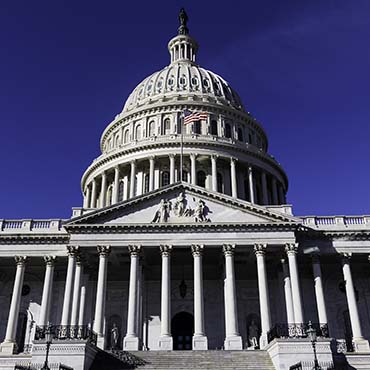Will funding standoff lead to a shutdown?

As Congress returns from recess with one working week to fund the government, OMB has taken the precaution of posting shutdown guidance on its website.

Congress is returning from its Easter recess with just five working days to pass a funding bill or face a partial government shutdown.
Leadership in the House and the Senate from both parties seemed fairly confident before the recess that the appropriations committees were on track to come together with a package of bills funding the government for the remainder of fiscal year 2017.
Trump himself offered a positive reading of the situation. Asked about the possibility of a government shutdown on April 21, the president said, "I think we're in good shape."
However, OMB recently added a list of shutdown contingency plans to its website. These plans mostly date back to September 2015, when a shutdown appeared to be in the offing.
At his April 21 briefing, White House Press Secretary Sean Spicer characterized the move as routine, and told reporters that, "we remain confident that we’re not going to have a shutdown."
Mick Mulvaney, director of the Office of Management and Budget, warned on April 20 that Democrats needed to compromise on supplemental funding items President Donald Trump wanted in the 2017 budget – including preliminary funding for a planned border wall.
"This is the first real test of whether or not the Democrats, specifically in the Senate, are interested in negotiating, interested in compromising," Mulvaney said in remarks at an Institute of International Finance event. "If they’re watching, call us. We're ready to talk about this."
"I will be curious to see how they respond. If they tell us to pound sand, I think that’s probably a disappointing indicator of where the next four years is going to go," Mulvaney said. "Elections have consequences, as folks who win always like to say."
An aide to Senate Minority Leader Chuck Schumer accused Mulvaney of gumming up the works.
"Everything had been moving smoothly until the administration moved in with a heavy hand," Schumer spokesman Matt House said. "Not only are Democrats opposed to the wall, there is significant Republican opposition as well."
The most recent government shutdown occurred in 2013, and lasted 17 days. Prior to that, a standoff between the Clinton administration and Republican House Speaker Newt Gingrich led to a shutdown in 1996.
This time Democrats appear to feel they have the edge, because Republicans control both chambers of Congress and the White House.
"We have the leverage and they have the exposure," House Minority Leader Nancy Pelosi (D-Calif.) said on a call with Democratic members, according to an Associated Press report.
A shutdown, if it happens, would commence on the 100th day of the Trump presidency.



